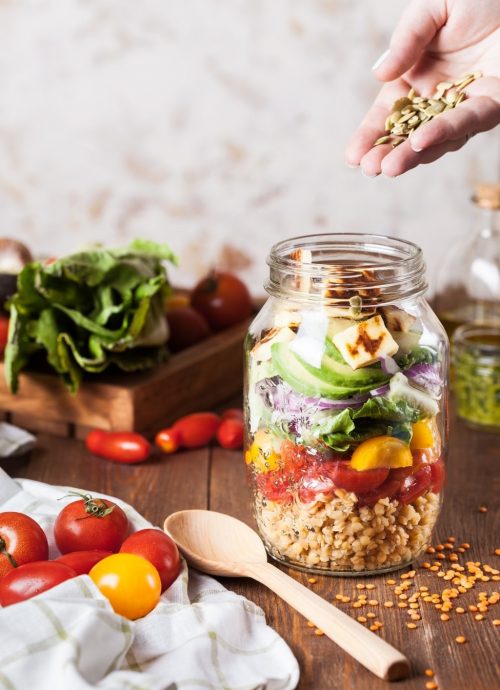Inflammation and immune function are hot topics. Now more than ever it is essential to boost your
immune system and be as healthy as possible.
Why is inflammation a problem?
Chronic inflammation and poor immunity are the cause of so many health issues. While we often
associate inflammation with arthritis and allergies, it is related to so much more. In fact, chronic inflammation has been identified as an underlying cause of most chronic health issues, including mental health conditions (such as depression), dementia, heart disorders, respiratory diseases, diabetes, and cancer (1).
So lets get started by talking about what inflammation is…
What is inflammation?
Inflammation is an important part of your immune response. A healthy inflammatory response is
short-lived and will often resolve on its own. It can help to heal wounds and injuries, fight off infections and protect your body’s tissues.
However, inflammation can have a negative effect on your body if you have too much inflammation or if it
lasts for too long. When inflammation fails to resolve and it becomes chronic,
it can damage your tissues and cause continued stress in your body. It’s like a light without an off switch – it burns a lot of energy and this comes at a cost!
Inflammation can be localised to one area of your body or it can run throughout your whole body which is called systemic inflammation affecting multiple systems in the body. Inflammation may also be ‘silent’ not always causingobvious symptoms.

What causes inflammation?
There are many causes of
inflammation which may be separated into external and internal triggers.
External triggers from outside of your body : infections, chemicals, and environmental toxins.
Internal triggers from inside your body: hormone imbalances such as low oestrogen or cortisol, inadequate
antioxidants and autoimmune diseases where your body attacks its own tissues.

How to manage inflammation
The main key to managing inflammation is to find and treat the cause. You need to know what’s triggering it in order to resolve it.
Essential factors for reducing inflammation (2,3)
- Prioritise quality sleep, especially between 10pm to 2am. During sleep your body releases hormones that reduce inflammation and promote tissue repair.
- Reduce excess weight. Fat cells can release inflammatory cells and cause inflammation and damage to surrounding tissues. In contrast, muscle cells help to regulate your blood sugar, metabolism, and immune function.
- Minimise stressors. Both physical and emotional stress can increase inflammation. Reduce your exposure to toxins and environmental stressors by using low- or chemical-free products in your home and on your body.
- Exercise. While excessive or intense exercise can stress the body, regular muscle strengthening exercise can help reduce inflammation and boost your immunity.
- Manage your minerals. Minerals like magnesium are anti-inflammatory. Many minerals, like selenium and zinc, can also improve your immune response and reduce cell damage by acting as antioxidants.
- Balance your microbiome. You need a variety of beneficial bacteria in your gut to regulate your immune function, reduce inflammation, protect you from infections, and to absorb nutrients. Work with a functional medicine practitioner to identify what strains of bacteria you need. The good bacteria also need fibre from your diet to thrive.
- Follow an anti-inflammatory diet. Sugar and trans-fats can contribute to low-grade inflammation by producing toxic compounds called advanced glycation end products (AGEs). AGEs can disrupt your microbiome and contribute to insulin resistance, diabetes, and other chronic disease. An anti-inflammatory diet involves reducing inflammatory food (as mentioned) while focusing on foods high in antioxidants such as berries, blah blah. These foods help your body detoxify wastes that can otherwise promote inflammation.


Author: Rachel Balm
Naturopath and Functional Medicine Practitioner (BHsc. Naturopathy)
References
1. Furman, D., Campisi, J., Verdin, E. et al. (2019). Chronic inflammation in the etiology of disease across the life span. Nature Medicine, 25, 1822-1832, https://doi.org/10.1038/s41591-019-0675-0.
2. Pahwa, R., Goyal, A., Bansal, P., & Jialal, I. (2021). Chronic inflammation. StatPearls Publishing. Sourced from https://www.ncbi.nlm.nih.gov/books/NBK493173/.
3. Tan, B., Norhaizan M.E., Liew W-P-P., & Sulaiman Rahman, H. (2018). Antioxidant and oxidative stress: a mutual interplay in age-related diseases. Frontiers in Pharmacology, 9:1162. doi: 10.3389/fphar.2018.01162
We conduct health education evenings periodically so keep an eye out for the next one at Infusion Pilates and Physiotherapy – always posted on our social media – Facebook and Instagram page = follow us infusionpilates to stay tuned.
Edited by: Vanessa Kirby


